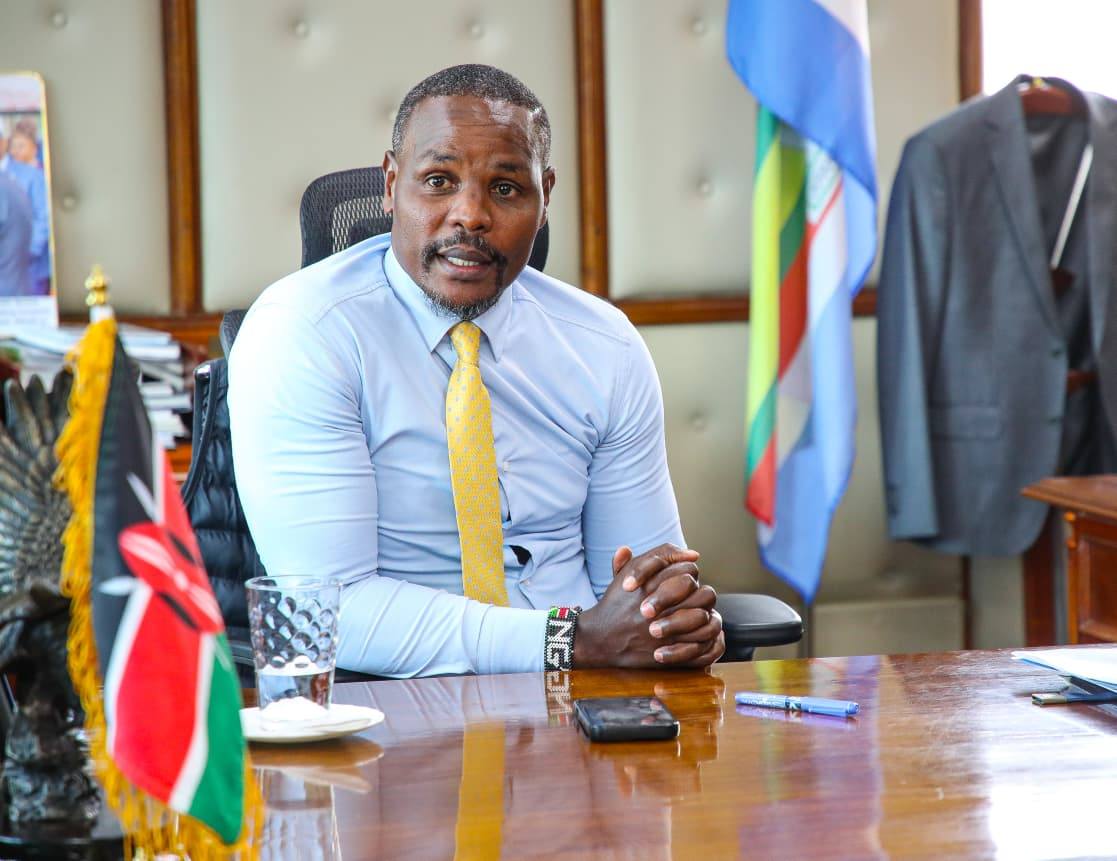
The launch of an ambitious plan to restore the heavily degraded Mau Forest Complex has been postponed to next week.
The Mau Forest Complex Integrated Conservation and Livelihood Improvement Programme (MFC-ICLIP) was initially scheduled for launch tomorrow by President William Ruto at Baringo Primary School in Kuresoi North, Nakuru county.
Environment and Climate Change PS Festus Ng’eno, who is also the programme’s patron, announced the postponement on Tuesday.
“The Mau Forest Complex Integrated Conservation and Livelihood Improvement Programme, in collaboration with its partners, wishes to inform all stakeholders and the general public that the official launch of the first edition of MFC-ICLIP, earlier scheduled for October 24, has been rescheduled to October 27 at 9 am," he said.
"President Ruto will be the chief guest.”
Ng'eno said the Mau Conservation Marathon will proceed as planned tomorrow starting at 6.30 am.
“The Chief of Staff and Head of Public Service Felix Koskei shall visit the site today at 10 am to inspect the state of preparedness ahead of the official launch,” he said.
The PS expressed regret for any inconvenience caused by the postponement and thanked stakeholders for their continued support.
“MFC-ICLIP sincerely regrets any inconvenience this postponement may cause and appreciates your understanding as we work together towards the successful restoration and conservation of the Mau Forest Complex,” Ng’eno said, adding the marathon winners will be awarded by the President during Monday’s launch.
The Mau Forest Complex, covering 403,000 hectares (995,833 acres), is East Africa’s largest Afro-montane forest and Kenya’s most vital water tower.
It feeds 12 major rivers—including the Mara, Nyando and Ewaso Ng’iro—which sustain farming, wildlife and millions of households. Its ecological value is estimated at Sh197 billion, making it Kenya’s most economically significant forest.
However, large sections of the Mau have been lost over the years. In Nakuru county alone, 64,799 acres of the Southwest Mau are gone, while the Eastern Mau has lost more than 82,000 acres, with 41 per cent of the remaining area degraded. The Molo Forest Block is nearly depleted.
Illegal charcoal production, excessive logging, overgrazing, poor farming practices, forest fires and encroachment have pushed the ecosystem to breaking point.
To reverse the damage, MFC-ICLIP targets the eastern, western, southwest and Molo forest blocks, blending science with community participation.
Already, 19 tree nurseries have been mapped, boasting 2.2 million seedlings in Kuresoi North, Kuresoi South, Njoro and Molo.
The 10-year, Sh21.5 billion initiative seeks to heal Kenya’s largest water tower, restore degraded land and safeguard the livelihoods tied to it.
PS Ng’eno has personally adopted 328 acres in Muchorwe, Eastern Mau, which are already under restoration. Government agencies, corporates and county leaders have followed suit, each “adopting” portions of the forest.
The National Environment Management Authority has taken 51 acres, the Kenya Forest Service 49 acres, Nakuru Governor Susan Kihika 54 acres, while Safaricom has committed 3,706 acres. In total, 4,821 acres have already been earmarked for restoration.
Key interventions under the programme include restoring 33,138 hectares (81,885 acres) of degraded forest, rehabilitating 14 dams, protecting 40 springs and establishing 16 kilometres of socio-economic buffer zones.
At least 668 hectares (1,650 acres) of wetlands and 100 kilometres of riparian ecosystems will also be restored.
Communities will benefit from clean and affordable energy solutions, including 500 solar, biogas and energy-efficient stoves for households, as well as renewable energy systems for schools.
The initiative will also promote 50 green value chains in milk, potatoes and avocados, support agroforestry on 143,000 hectares (353,360 acres) and create at least 10,000 green jobs.
Under the circular economy component, the project will establish 100 waste recovery enterprises, set up three material recovery centres, and distribute more than 2,000 waste bins to schools and communities.
To enhance environmental awareness, 200 schools will establish mazingira
clubs, while 200 youth-led innovations
will be supported under the research and education pillar.












